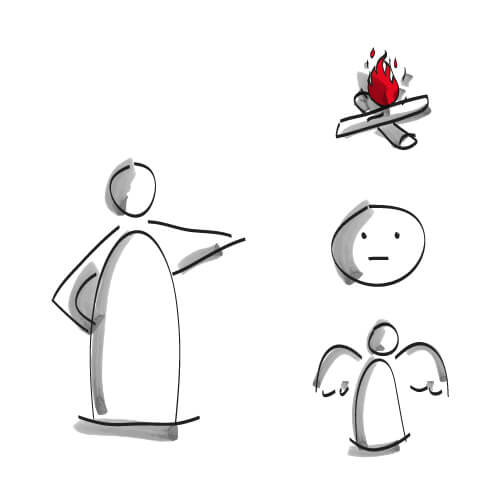In the USA, failure is viewed positively, as a stimulus to learning. How is it viewed in your company or organization, or how do you see it yourself?
Here are four very pertinent quotations on the subject:
“Falling down is not a failure. Failure comes when you stay where you have fallen.” – Socrates
“Failure defeats losers. Failure inspires winners.” – Robert T. Kiyosaki
“If you’re not failing every now and again, it’s a sign you’re not doing anything very innovative.” – Woody Allen
“There is only one way to fail, and that is by giving up before you succeed.” – Olivier Lockert
What is the role played by a superior in the context of innovation? How does he/she exert leverage?
Continuing our journey (“Leadership: Why don’t we have the impact we would like?“), let’s consider for a moment one of the expectations employees have of a good boss: they expect him/her to be present.
Definition
Presence means being there. As well as its original use in the military context (“Present!” = “Reporting for duty”, therefore being available), or in the sense of “presence of mind” (= “I’m here; my mind is at your disposal”), the notion of presence can signify the availability of something in other contexts.
A manager can be present in three different ways:
- Physical presence, in the event of a crisis
- Psychic/mindful presence, paying full attention during interviews
- Psychological presence, as protector/supporter
Physical presence in the event of a crisis
As managers, we are often absent or involved in countless meetings. It is increasingly difficult to be physically present in the workplace. However, in the event of a crisis or emergency, you have to be there physically. This is because your presence will calm people down and inspire confidence. You manage the situation by accepting and carrying out your responsibilities.
Psychic or mindful presence during conversations
This kind of presence is a boon for your employees and the people you meet with. By giving them your mindful presence, you are respecting and showing interest in them. You need to engage in active listening. The person opposite you will pick up very quickly if you are not mindfully present. The more we are worried, burdened, dependent on electronic media, the more easily we get distracted.
At home, my wife and children can be depended on to point this out to me.
If you have your laptop with you, if you are thinking of the speech you are going to make, or trying your hardest not to forget something, you will be focused on yourself, not on the other person. Free yourself from devices such as your laptop or tablet and, at the same time, free up your mind. Concentrate on the person opposite you and listen actively.
It is better to give ten minutes of your time and be really present than to spend half an hour or a whole hour only partly focused. The people you are dealing with will value this.
Psychological presence (being a “guardian angel”)
Who among you, or which of your superiors, has not said: “You can count on me!”? Everyone says it, but we tend to fall short. Who systematically puts it into practice?
But psychological presence of this kind is one of the great drivers of innovation in the corporate context.
If a person is not afraid of making a mistake, and knows by experience that their line manager, their executive management and the CEO will support them in a difficult situation, this person will get fully involved, be creative and daring.
If this is not the case, is it likely that the person will engage fully?
Many companies claim to have a “culture that allows mistakes” but, if you look more closely, you find that fear and anxiety still predominate.
Your behaviour really must match your words in this area.
Your employees will not believe you until they have actually experienced it. When they have seen that their superior really is a kind of “guardian angel”, and that mistakes are not the end of the world, as long as they learn from them.
Be present and become an engine of innovation!

